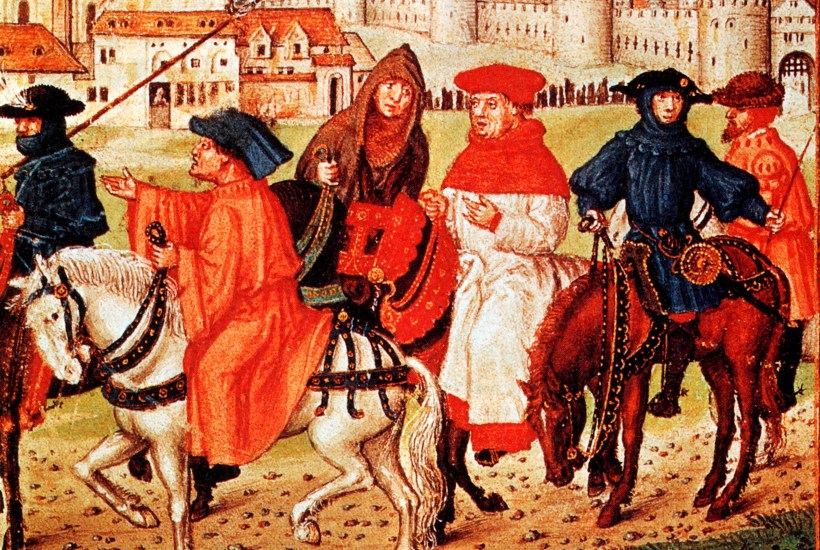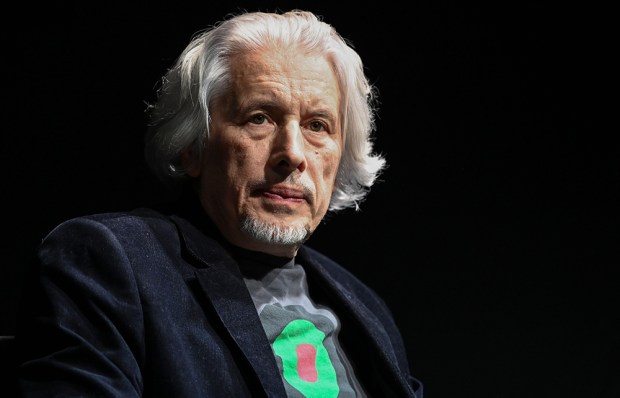Matthew Kneale is much drawn to people of the past. In his award-winning English Passengers, he captured the sensibilities of a group of 19th-century seafarers bound for Tasmania in search of the Garden of Eden by chronicling their voyage in 21 singular, vibrant voices, and by weaving into their journey a heavy thread of racist and colonial endeavour. In his latest book, he returns to these themes of voyage and discovery, adventure and prejudice with his band of 13th-century pilgrims who have assembled in England as a ‘proper party’ in order to travel to Rome — without, they hope, being ‘stabbed or robbed or cudgelled to death along the road’.
Among the cast are Constance, who worries that her infidelity has endangered the health of her young son; Margaret, who collects souvenir badges with which to adorn her hat; Lucy de Bourne, a woman of appetites in search of divorce; Matilda, a Margery Kempe-like figure who is in flight from her tyrannical husband and in amorous thrall to Christ; Sir John, a choleric ‘troubler’ who has been ordered to travel as a penance for punching an abbot on the nose; Jocelyn, a subtle lawyer and enthusiastic adulterer; and, at the centre of them all, Tom, an indentured simpleton who is troubled by visions of his beloved cat roasting in purgatory.
Each one of this Chaucerian crew provides a first-person account of different facets of the trip, painting a picture of a world in which almost everyone wonders how angry their sins have made the Almighty. The resulting narrative is broadly comic in spirit: Tom and his cohort conclude their great expedition through this violent landscape with easy fellow-feeling and a collective
inability to master their desires. Many of these are sexual; some involve nuns.
Kneale conveys well the anguish to which his pilgrims fear they or their loved ones are condemned in the afterlife. But the different voices are not sufficiently defined and, with the exception of Tom’s, lack strength and resonance, leaving the story feeling languid and obscure./>
Got something to add? Join the discussion and comment below.
Get 10 issues for just $10
Subscribe to The Spectator Australia today for the next 10 magazine issues, plus full online access, for just $10.
You might disagree with half of it, but you’ll enjoy reading all of it. Try your first month for free, then just $2 a week for the remainder of your first year.














Comments
Don't miss out
Join the conversation with other Spectator Australia readers. Subscribe to leave a comment.
SUBSCRIBEAlready a subscriber? Log in